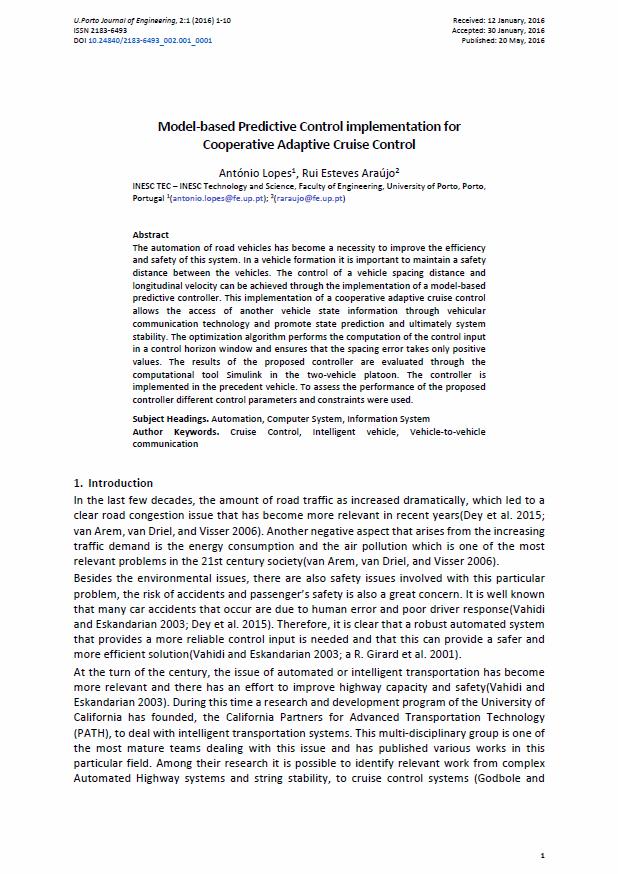Model-based Predictive Control implementation for Cooperative Adaptive Cruise Control
Main Article Content
Abstract
The automation of road vehicles has become a necessity to improve the efficiency and safety of this system. In a vehicle formation it is important to maintain a safety distance between the vehicles. The control of a vehicle spacing distance and longitudinal velocity can be achieved through the implementation of a model-based predictive controller. This implementation of a cooperative adaptive cruise control allows the access of another vehicle state information through vehicular communication technology and promote state prediction and ultimately system stability. The optimization algorithm performs the computation of the control input in a control horizon window and ensures that the spacing error takes only positive values. The results of the proposed controller are evaluated through the computational tool Simulink in the two-vehicle platoon. The controller is implemented in the precedent vehicle. To assess the performance of the proposed controller different control parameters and constraints were used.
Downloads
Article Details
Authors who publish with this journal agree to the following terms:
- Authors retain copyright and grant the journal right of first publication with the work simultaneously licensed under a Creative Commons Attribution License that allows others to share the work with an acknowledgement of the work's authorship and initial publication in this journal.
- Authors grant the journal the rights to provide the article in all forms and media so the article can be used on the latest technology even after publication and ensure its long-term preservation.
- Authors are able to enter into separate, additional contractual arrangements for the non-exclusive distribution of the journal's published version of the work (e.g., post it to an institutional repository or publish it in a book), with an acknowledgement of its initial publication in this journal.
- Authors are permitted and encouraged to post their work online (e.g., in institutional repositories or on their website) prior to and during the submission process, as it can lead to productive exchanges, as well as earlier and greater citation of published work (See The Effect of Open Access).

